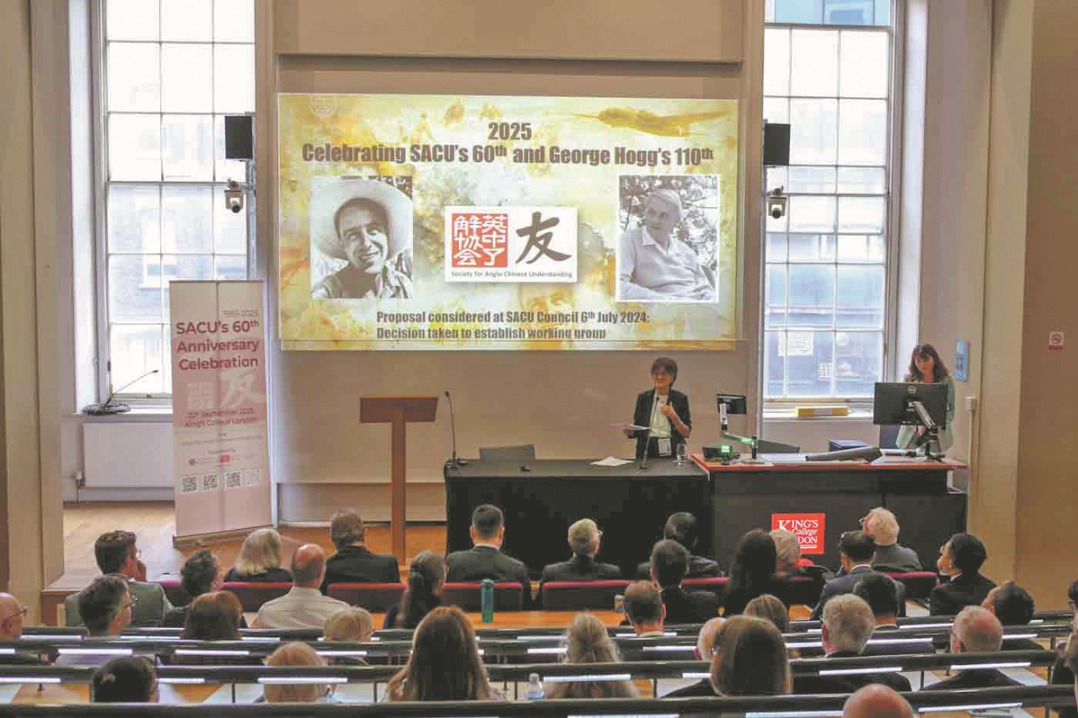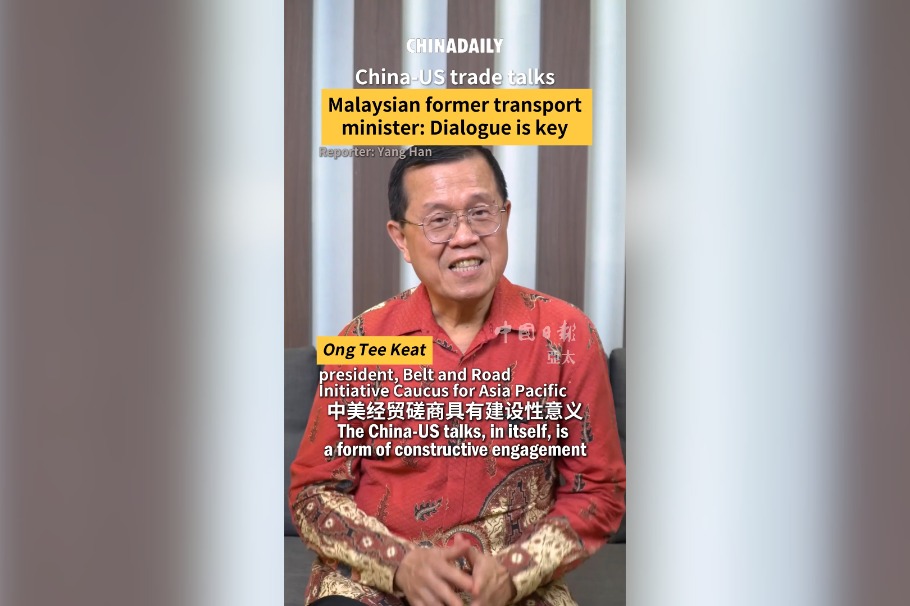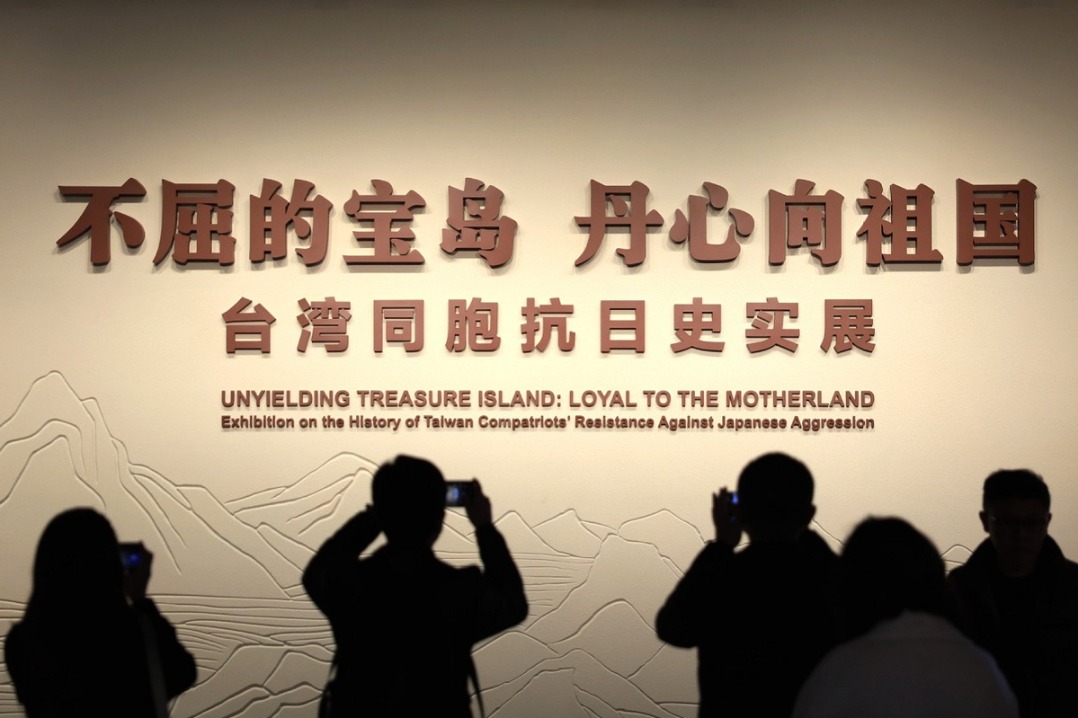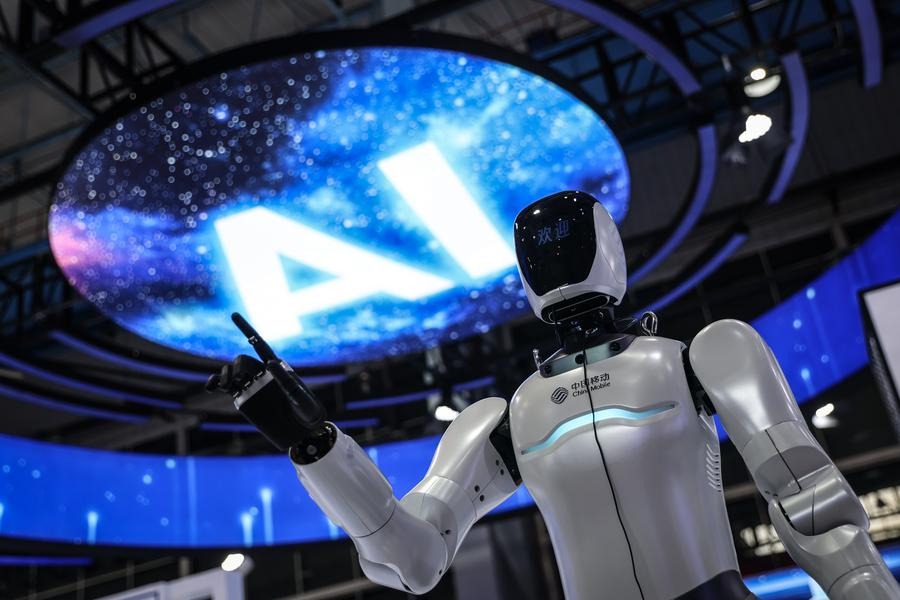Keep the boulder moving


China and the US should strive to implement the consensus reached by the two heads of state in November to stop the slide in relations
Editor's note: The world has undergone many changes and shocks in recent years. Enhanced dialogue between scholars from China and overseas is needed to build mutual understanding on many problems the world faces. For this purpose, the China Watch Institute of China Daily and the National Institute for Global Strategy, Chinese Academy of Social Sciences, jointly present this special column: The Global Strategy Dialogue, in which experts from China and abroad will offer insightful views, analysis and fresh perspectives on long-term strategic issues of global importance.
The Donald Trump administration dug many holes for China-US relations. Joe Biden has done some things in its China policy since he took office as president in 2021. But generally speaking, he has not drawn a clear line from his predecessor. And in its National Security Strategy released in October, the Biden administration identified China as the US' "most consequential geopolitical challenge".Washington has continued to build "a small yard with high fences", suppressed China on science and technology and brought about turbulence to bilateral relations. Not least, the visit to Taiwan by then US House speaker Nancy Pelosi was a serious challenge to the one-China principle.
China-US relations are not totally gloomy, however. The strong interdependence between the two economies has outweighed the "decoupling" attempts of Washington, and bilateral economic and trade relations have continued to grow. Chinese companies and investors listed in the US have recently passed US audits, which shows that going public in the US is still important to Chinese companies. The US decided to extend the tariff exemption for 352 Chinese exported products for another nine months, an indicator that the US still values mutually beneficial trade. Over the past year, China and the US have maintained high-level and working-level contacts.
The meeting between President Xi Jinping and President Biden ahead of the G20 Summit in Bali was the first face-to-face meeting between the two heads of state since Biden took office, which is of great significance to the reconstruction of China-US relations. For decades, China-US relations have been driven by common interests, and the intersection of the national interests of the two countries is the basis of bilateral relations. President Xi characterized the common interests between the two countries on three levels: The security interests of non-confrontation, non-conflict, and peaceful coexistence; the development interests of highly interdependent economies and mutual benefits from each other's economic growth; global governance and broader common interests in addressing global challenges. These latter common interests are crucial to building a new type of relations between the two countries. When people talked about China-US relations in the past, they often paid more attention to bilateral issues and paid less attention to global issues. The COVID-19 pandemic should change this public opinion and arouse heightened attention to global issues such as public health. Moreover, the impact of the pandemic on the global economy has been far-reaching. The post-pandemic recovery of the world economy, just like after the 2008 financial crisis, requires cooperation between China and the US. As global powers, China and the US should play a leading role in global issues. In fact, the two sides have played a leading role as major countries in the reaching of the Paris Agreement and its implementation. This marked a contribution of China-US cooperation to the world.
During their meeting in Bali, President Biden reiterated that the US does not seek a new Cold War with China; that it does not aim to change China's system; that the revitalization of its alliances is not targeted at China; that it does not support "Taiwan independence"; and that it has no intention to seek a conflict with China. He also made it clear that Washington is not seeking decoupling from China, halting China's economic development or containing China. It is important for the US side to honor its promises instead of saying one thing and doing another.
Regarding China-US relations, the US emphasizes competition and wants to out-compete China, while the Chinese side emphasizes cooperation. Why is there such a difference? In the post-Cold War period, both the Democratic Party and the Republican Party have emphasized the "Pax Americana", which is actually a unipolar world dominated by the US, with Washington having the final say on world affairs. Facts have shown that this vision will not work. But this concept is deeply rooted in the US. Former US presidents Richard Nixon and Barack Obama have said that they cannot accept the US taking second place in the world, or even being first among equals. People in the US became anxious once China's economy grew to half the size of the nation (even though its per capita GDP is only one-fifth that of the US), worrying that China will challenge their hegemony one day. As a result, China's development has become a "China threat". In the 1990s, I heard from scholars on China studies in the US that what the US was worried about was not China's development, but China's lack of development. Now they are worried about China's development because China is the only country that can present a comprehensive challenge for a long time. In fact, catching up with or surpassing the US is not the goal of China. China is still in the initial stage of its socialism, and its development still has a long way to go. It requires generations of people to work together and carry forward their struggle. China has long attached importance to its relations with the US and neighboring countries in order to create a favorable international environment for its development.
The international order established after the end of World War II has largely been carried forward, but changes have naturally taken place. The biggest change was the end of the Cold War. The international situation in the next few decades could see the continuation of the existing international order, with new factors expected to emerge to refine this order. The international order must keep pace with the times and reflect the changing international political and economic trends. In this regard, China can help make the international order better. The nation can work toward the partial improvement of the existing international order by cooperating with like-minded countries in certain specific fields, and continuously enrich and refine this order. Over the years, China has helped improve the international order by initiating the establishment of the New Development Bank, the Asian Infrastructure Investment Bank, and more importantly, the Belt and Road Initiative.
For decades, China has upheld the concept of peaceful development, worked toward an enabling international environment, and won the trust and cooperation of countries all over the world. In the next few decades, China and the US can avoid conflicts and confrontations, and prevent strategic showdowns on the condition that China does not use coercive methods to change certain elements of the existing global order, such as the US alliance system, and that the US does not use coercive methods to prevent China from partially improving the existing order. A strategic showdown between China and the US is not destined to happen. Naturally, both Beijing and Washington must give priority to managing their differences. On the US side, it is especially important to pay attention to the impacts of its polarized domestic politics on its China policy.
The year 2023 is important for China-US relations. The US will hold another general election in 2024, and China policy may again become part of the games of US politics. China and the US should make efforts to implement the consensus reached by the two heads of state in November as much as possible. The two sides should strengthen contacts, exchanges and consultations, and strive for as much cooperation as possible. Recently, a Chinese diplomat likened the current China-US relations to rolling a boulder uphill — there is no going back and hard work from both parties is required.
The author is an honorary member of the Academic Committee at the Chinese Academy of Social Sciences, a researcher of the Institute of American Studies at the CASS, and a senior fellow of the National Institute for Global Strategy at the CASS. The author contributed this article to China Watch, a think tank powered by China Daily.
Contact the editor at editor@chinawatch.cn
































